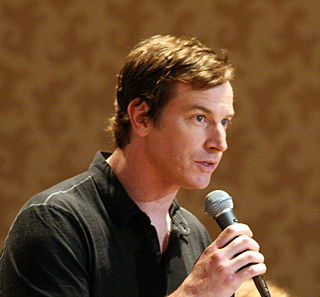A Quote by Colin Robinson
In an echo of earlier times, the climate change prophets have in recent years tried to silence counter views and suppress dissent. August members of the Royal Society, a body once noted for its cultivation of debate in science, are now leaders of the 'science is settled' camp: the only debate they consider to be legitimate is about choice among the different forms of the centralized action they believe is required to deal with the problems they foresee.
Quote Topics
About
Action
Among
August
Believe
Body
Camp
Centralized
Change
Choice
Climate
Climate Change
Consider
Counter
Cultivation
Deal
Debate
Different
Dissent
Earlier
Echo
Foresee
Forms
Leaders
Legitimate
Members
Noted
Now
Once
Only
Problems
Prophets
Recent
Required
Royal
Science
Settled
Silence
Society
Suppress
Times
Tried
Views
Years
Related Quotes
It is easier to silence scientific dissent by utilizing the politics of personal destruction, than to actually debate them on the merits of their arguments. That should tell you something about the global warming debate...there is none right now....it's either you believe, or you are to be discredited.
...the debate among the scientists if over. There is no more debate. We face a planetary emergency. There is no more scientific debate among serious people who've looked at the science...Well, I guess in some quarters, there's still a debate over whether the moon landing was staged in a movie lot in Arizona, or whether the Earth is flat instead of round.
Despite the international scientific community's consensus on climate change, a small number of critics continue to deny that climate change exists or that humans are causing it. Widely known as climate change "skeptics" or "deniers," these individuals are generally not climate scientists and do not debate the science with the climate scientists.
The climate change debate is basically not about science; it is about ideology. It is not about global temperature; it is about the concept of human society. It is not about nature or scientific ecology; it is about environmentalism, about one - recently born - dirigistic and collectivistic ideology, which goes against freedom and free markets.
I didn't believe in Bigfoot.I just thought, "No, that would be impossible. You know, we would have found Bigfoot by now. We would've found some skeletons, we would've found some sort of proof of Bigfoot." So, I didn't believe for a long time, but obviously this is the year we find Bigfoot. And obviously all scientists agree that there's definitely Bigfoot.There's no reason to debate it. It's like debating climate change. There's no reason to debate climate change anymore. There's no reason to debate whether there's Bigfoot. Clearly, the yeti exists.
Industrial Society is not merely one containing 'industry,' large-scale productive units capable of supplying man's material needs in a way which can eliminate poverty: it is also a society in which knowledge plays a part wholly different from that which it played in earlier social forms, and which indeed possesses a quite different type of knowledge. Modern science is inconceivable outside an industrial society: but modern industrial society is equally inconceivable without modern science. Roughly, science is the mode of cognition of industrial society, and industry is the ecology of science.




































